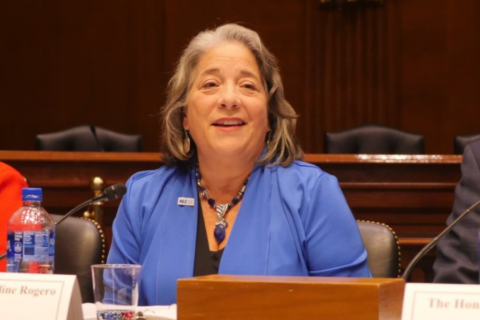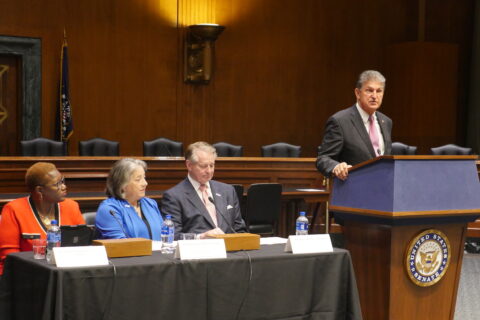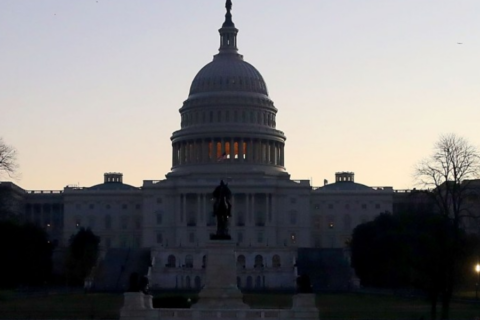Every year, in cities across the country, approximately 109,000 Americans die from drug overdoses. Nearly 70 percent of these overdoses can be attributed to synthetic opioids like fentanyl. On Wednesday, July 12, 2023, the Homeland Security Subcommittee on Border Security and Enforcement, led by Chairman Clay Higgins, held a hearing to examine the role of Transnational Criminal Organizations (TCOs), particularly Mexican drug cartels, in trafficking illicit fentanyl into the United States.
TCOs have developed sophisticated methods to smuggle dangerous drugs into the United States. For example, collaboration between Chinese TCOs and Mexican cartels has created a complex criminal system that fuels the trafficking of illicit fentanyl into the US. As Mexican cartels have taken over fentanyl production, they obtain chemicals from China and synthesize these chemicals in Mexico to produce fentanyl. Mexican cartels then smuggle the fentanyl into the United States for distribution.
Chinese TCOs also facilitate the trafficking and distribution of illicit fentanyl pills by providing Mexican cartels with pill press equipment to create fake oxycodone pills. These pills are designed to look identical to prescription oxycodone but are laced with fentanyl. These laced pills are the most common type of illicit fentanyl pill and are responsible for thousands of overdose fatalities. To manufacture these pills, Mexican cartels require pill press equipment to turn powdered fentanyl into pill form. The Mexican cartels purchase these pill presses directly from Chinese manufacturers that produce the equipment.
The collaboration between TCOs and cartels has created a complex supply chain of illicit drugs. Customs and Border Protection (CBP), with the support of Congress, continues to make significant improvements in drug detection capabilities and technology. In FY 2022, CBP canine teams seized 13,000 pounds of fentanyl at the border, valued at over 2.5 million dollars. CBP and Homeland Security Investigations (HSI) also target the import of chemicals used to make fentanyl and other equipment such as pill presses.
Between March 13, 2023, and May 10, 2023, CBP and HSI launched an operation called “Blue Lotus” to increase fentanyl seizures at specific points of entry along the Southwest Border. Focusing operations at the ports of San Ysidro and Otay Mesa, California and Nogales, Arizona, Operation Blue Lotus restricted the flow of illicit fentanyl smuggled into the United States from Mexico and disrupted TCO networks. Operation Blue Lotus successfully resulted in the combined seizures of over 8,200 pounds of fentanyl. As of June 12, 2023, HSI expanded the Blue Lotus operation to focus on interior facilities such as international mail locations.
TCOs use the darknet to plan and coordinate the transportation of illicit drugs. Additionally, TCOs are increasingly using cryptocurrencies to facilitate crime due to the method’s speed and anonymity. To address these issues, HSI created the Cyber Crimes Center (C3) to provide investigative assistance, training and technology to support investigations of cyber-related crimes. C3’s cyber investigators work to identify both producers and buyers of opioids. C3 also provides cybersecurity training to federal, state, local and international law enforcement personnel.
Finally, the Biden administration has complemented public safety efforts with a strong public health response. The 2023 bipartisan Omnibus Government Funding Bill included provisions to lower barriers to treatment and allocate resources to communities to address the overdose crisis. The bill allocated a total of $4.9 billion to address opioid misuse, an increase of $345 million from 2022. Other public health efforts include the Medication Access and Training Expansion Act, which requires doctors applying for a new or renewed Drug Enforcement Administration registration to have completed at least 8 hours of training on substance use disorders. The Office of National Drug Control Policy has also funded legislation and campaigns to help educate communities on naloxone, a medication used to reverse an opioid overdose.
Fentanyl related overdoses have a widespread impact on almost every city in America. Close collaboration between the federal government and local city leaders, in conjunction with the concerted efforts of local law enforcement, is essential to combat the infiltration of illicit fentanyl by TCOs into the United States. Prioritizing this issue requires increased federal funding directed toward supporting local initiatives aimed at tackling the fentanyl crisis head-on. The key lies in fostering intelligence sharing and operational coordination between local and federal law enforcement agencies.
By aligning resources and expertise, local governments can gain a stronger foothold in identifying TCO activities, disrupting supply chains, and apprehending those responsible. This synergy empowers local leaders to proactively protect their communities and fortify the collective fight against the perils of fentanyl trafficking.
Click here to learn more about opioid legislation under consideration in Congress.
About the Author:
Mira Schwardon is a Federal Advocacy Intern at the National League of Cities.






